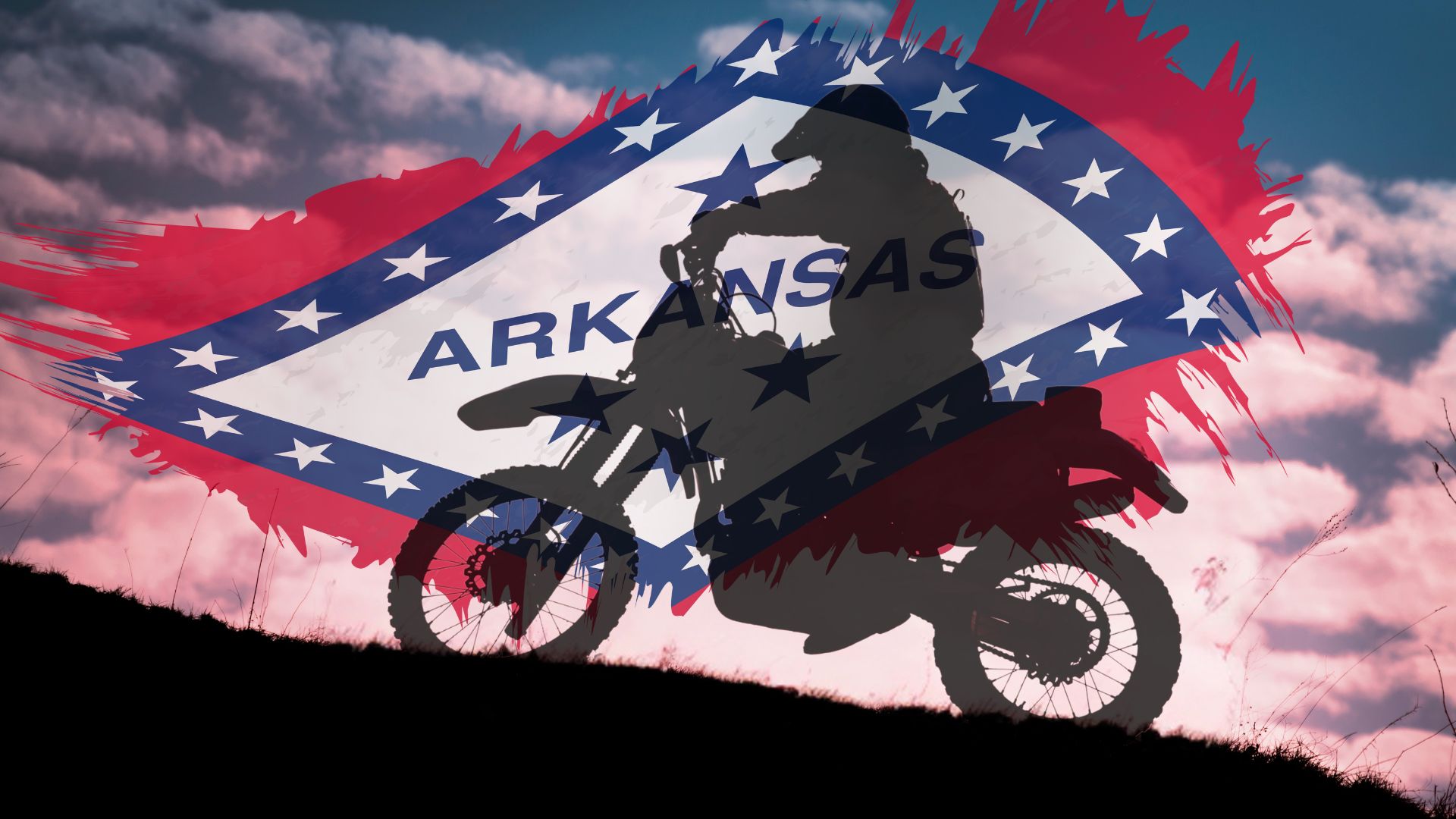Arkansas Act 312 Paves the Way for Safer, Sustainable Off-Road Recreation
Arkansas has made a bold leap into the world of off-road recreation liability with the passage of Act 312, signed into law by Governor Sarah Huckabee Sanders on March 18. This new legislation, which introduces the concept of “inherent risk” for off-road motorcyclists, is aimed at striking a delicate balance between participant responsibility and landowner liability. The law not only protects event organizers and private landowners but also lays down a framework that could help the off-road industry flourish. And yes, insurance plays a starring role.
Understanding the Law of “Inherent Risk”
At its core, Act 312 is built around inherent risk, a concept that’s been holding its ground in other sports like skiing and horseback riding. Think of inherent risk as the unavoidable hazards tied to certain activities. For off-road motorcycling, this can include unpredictable terrain, rider error, or obstacles that are part and parcel of the sport. Unlike negligence, inherent risks can’t be litigated away—but the law now ensures everyone involved understands where responsibility begins and ends.
Under Act 312, riders are tasked with oversight of their own safety. Ride within your abilities, and you’re fine. Push your limits and, well, you’ll have to own the consequence. On the flip side, property owners and event organizers are required to maintain reasonably safe conditions. Failure to address obvious hazards or to provide basic safety measures can still leave them open to liability. This give-and-take means fewer legal potholes while creating more trust for all parties involved.
Insurance Brings Stability to Off-Road Events
If you’ve been part of the off-road community, you know the biggest hurdle for holding events often isn’t the terrain or the logistics; it’s securing insurance. Liability concerns have left some organizers feeling deserted by insurers unwilling to underwrite risky ventures. This was starkly evident when California’s LACR MX Park shut down in 2024 after countless attempts to find liability coverage failed.
Arkansas’s Act 312 swoops in with a solution. By codifying inherent risk into law and clarifying the legal expectations for landowners, it makes obtaining insurance more achievable. Insurers can rely on clearer boundaries for coverage, and organizers aren’t left walking a legal tightrope. Essentially, the law creates smoother trails for everyone involved in this notoriously tricky terrain. According to the American Motorcyclist Association (AMA), the law “increases the likelihood that landowners and organizers will receive the necessary insurance protections needed to hold off-road motorcycle events.” That’s music to the ears of many dirt bike enthusiasts and event planners.
Learn from the Equine Industry’s Liability Shield
Act 312 draws inspiration from similar legislation in the equine industry, where 48 states have recognized the inherent risks involved with horseback riding. These laws have helped stabilize equestrian businesses, offering them liability relief while holding participants accountable for risks they naturally assume. Arkansas’s off-road law mirrors this model, blending tradition with innovation.
Imagine riding through a motocross event where owners have installed proper signage, maintained well-groomed tracks, and systematically inspected for hazards. Riders know their responsibilities; landowners know theirs. It’s mutual respect, sealed in a legal handshake. And if the equine world has taught us anything, it’s that these frameworks can empower everyone involved, without stifling the thrill.
Why It Matters
Nearly $25 billion is spent annually in the United States on off-road recreational activities, and Arkansas is making sure its slice of the pie remains intact. By protecting landowners and reducing frivolous lawsuits, the state fosters an environment where recreational businesses can thrive. For participants, it’s a built-in sense of security knowing everyone—from the landowner to the event organizer—is working to enforce safety without diminishing the adventure.
But Act 312 also underscores a lesson that extends far beyond the Arkansas dirt tracks. Whether you’re organizing a church bazaar or hosting a neighborhood block party, understanding liability is critical. Tailoring liability waivers, investing in proper insurance, and setting realistic expectations can significantly reduce your personal or organizational risk. Act 312 shows us that when everyone has a job to do, the entire system functions better.
Potential Challenges of Act 312
While Act 312 is designed to provide clarity, the concept of “inherent risk” could lead to confusion in practice. Determining what qualifies as an unavoidable part of off-road recreation versus what stems from negligence is not always straightforward. For example, if a rider encounters a hidden hazard that should have been addressed by the property owner, it might spark debates about liability. This ambiguity could result in disputes, particularly in cases where the line between natural risks and preventable dangers is blurred. Legal challenges could arise as courts attempt to define the law’s limits, making it essential for both riders and organizers to fully understand their rights and responsibilities.
Another challenge lies in the increased onus on riders to assess and manage their own safety. This heightened responsibility may discourage newcomers or less skilled participants from engaging in off-road activities, fearing they lack the experience to protect themselves adequately. While this law encourages personal accountability, it could unintentionally create barriers to entry for individuals who might otherwise explore the sport. Additionally, the intended insurance relief may not be immediate. As insurers assess the law’s impact on claims and risk levels, policy adjustments could take time, leaving landowners and organizers in a gray area where costs remain high. For these reasons, while Act 312 lays a promising foundation, its practical application may see initial bumps in the road.
Bringing It Home
For the casual weekend warrior, Act 312’s principles are a reminder to check the insurance fine print before hitting the trails. Does your personal coverage protect you, or is it defending against the event’s waivers of liability where you should consider taking the supplemental insurance offered? If you are the organizer looking for perfect trails, this law makes it possible to bind deals with landowners where no one is shortchanged.
On a larger scale, exercising jurisdiction on American off-road vehicles such as dirt bikes may stimulate other states to enact similar legislation or expand their off-road offerings as a result of exploring new regions. There’s an open invitation to work together: insurers, landowners, and fans of these activities. The existence of laws of this nature fosters an environment in which riders can throw up some dirt and groundwater while homeowners know they’re safe and can relax.
Dirt bikers are able to celebrate because Arkansas Act 312 is not only a motorcycle law- but an indication of viewing recreation and liability from an innovative lens. Regardless of whether you are a rider or a landowner, the law removes complicating elements so that all parties can navigate freely to what lies ahead. Isn’t that, at the end of the day, what matters most?


